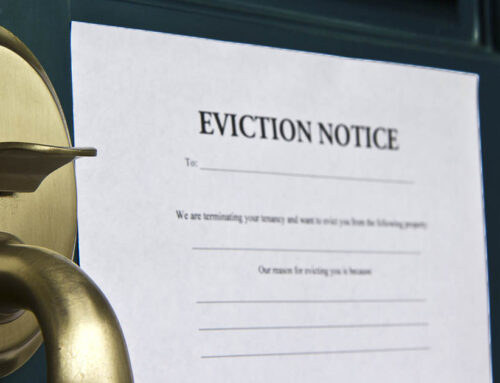If you’re considering filing for bankruptcy, you’ve probably heard about the 341 meeting and may be feeling a lot of anxiety about what to expect. This meeting of creditors is a critical part of the bankruptcy process, and it’s normal to feel some concern.
Many people experience 341 meeting anxiety, worrying about what will happen, if creditors will attend, and whether they’ll say the wrong thing. But don’t worry—it’s not as overwhelming as it might seem.
This article will walk you through everything you need to know about the 341 meeting, what happens after the meeting, and how to manage your anxiety as you prepare for your bankruptcy discharge. By understanding the process, you’ll feel more confident and prepared.
What is a 341 Meeting and Why It’s Important in Bankruptcy?
The 341 meeting, or meeting of creditors, is a standard step in both Chapter 7 and Chapter 13 bankruptcy cases. This meeting usually takes place 20 to 40 days after you file your bankruptcy petition. Its primary purpose is to allow the bankruptcy trustee overseeing your case to ask you questions about your finances and the documents you’ve submitted.
Unlike what the term “meeting of creditors” might suggest, creditors rarely attend these meetings. In most cases, it’s just you, your lawyer, and the trustee. The trustee will ask routine questions to confirm your information, but these questions are rarely tricky or unexpected. Your lawyer will guide you through the process to ensure you are prepared and know what to expect.
For many people, the 341 meeting is the most anxiety-inducing part of the bankruptcy process. However, the reality is much simpler: the trustee is just doing their job, and the meeting is usually over in a matter of minutes.
Why Do Creditors Attend the 341 Meeting?
While it’s uncommon, there are cases where creditors may choose to attend a 341 meeting. This can happen for various reasons, such as verifying the accuracy of your claims, contesting a bankruptcy discharge, or discussing a secured debt. But their attendance doesn’t necessarily mean bad news. Often, if a creditor shows up, they are simply seeking clarification on a specific issue related to their claim.
In small towns, for example, a small-town bank might attend if they are closely familiar with the debtor or if the debt is particularly large. However, in most Chapter 7 and Chapter 13 cases, the appearance of a creditor at the 341 meeting doesn’t result in any complications.
Even when a creditor does attend, the trustee handles most of the discussion, and the meeting proceeds smoothly. Remember that most bankruptcy cases involve no creditor appearance at the 341 meeting.
What Happens After the 341 Meeting?
After the 341 meeting, there’s a 60-day waiting period during which creditors can object to your bankruptcy filing. While this waiting period can cause anxiety, it’s important to remember that the majority of cases proceed without any objections.
During this time, the bankruptcy trustee will review your case in more detail. They may request additional documents, especially if they want to clarify something. But if you’ve submitted everything correctly, there’s not much to worry about. The trustee’s role is to ensure that your filing is accurate and complies with bankruptcy law, not to challenge every aspect of your case.
Once this waiting period is over, you’ll either receive your bankruptcy discharge or move on to the next steps in the process, depending on whether you filed for Chapter 7 or Chapter 13 bankruptcy.
Common Reasons for Post-341 Meeting Anxiety
Feeling anxious after the 341 meeting is common, especially if you’re unsure what will happen next. Many people worry that they may have forgotten an important document or that the trustee or creditors will find an issue with their filing. However, this anxiety is often unfounded.
The legal process can feel overwhelming, especially if this is your first experience with bankruptcy. But if you’ve worked with your lawyer to prepare your case thoroughly, you’ve already done the hard part. Post-341 meeting anxiety usually stems from fear of the unknown, and the more you understand about the bankruptcy process, the more confident you can feel.
How to Calm Your Fears and Prepare for Bankruptcy Discharge
There are several ways to manage your anxiety while waiting for your bankruptcy discharge.
One of the most important things is to stay in communication with your lawyer. If you’re unsure about anything, don’t hesitate to ask for clarification.
It can also help to remember that the bankruptcy process is designed to help, not hurt, you. As long as you’ve provided all necessary documents and have followed your lawyer’s advice, you’re likely to receive your bankruptcy discharge without any problems.
In addition to legal guidance, you might find it helpful to participate in online bankruptcy forums or support groups, where people share their experiences and offer advice on dealing with post-341 meeting anxiety.
What if a Creditor Objects? What You Need to Know
Although objections from creditors are rare, they can happen. If a creditor does file an objection within the 60-day period, this may result in an adversary proceeding—a lawsuit within your bankruptcy case. This often occurs when the creditor believes you’ve acted dishonestly or if they think a specific debt should not be discharged.
If an objection arises, your lawyer will help you respond appropriately. Most objections can be handled without causing significant delays in your case, but it’s important to be prepared in case it happens.
Understanding the Bankruptcy Discharge: What’s Next?
After you make it through the 341 meeting and the 60-day waiting period, you’re one step closer to your bankruptcy discharge. In a Chapter 7 case, this typically happens within a few months. For Chapter 13, it can take longer since you’ll need to complete your repayment plan first.
The bankruptcy discharge releases you from personal liability for most debts, allowing you to move forward financially. After the discharge, you can begin rebuilding your credit and planning for a more secure financial future.
341 Meeting: Frequently Asked Questions
Creditors have 60 days after the 341 meeting to object. However, this is rare in most bankruptcy cases.
For Chapter 7, most discharges happen within a few months after the 341 meeting. For Chapter 13, it depends on the length of your repayment plan.
Even if a creditor attends your 341 meeting, they might not ask any questions. Many creditors show up to the meeting of creditors because they want to verify information or clarify a specific debt. Others will attend the 341 meeting because they are unfamiliar with the bankruptcy process and don’t understand the purpose of the meeting.
No, creditors rarely attend 341 meetings. In most cases, it’s just you, your lawyer, and the trustee.
ABOUT THE AUTHOR
Meet Jay
 Since I became a lawyer in 1995, I’ve represented people with problems involving student loans, consumer debts, mortgage foreclosures, collection abuse, and credit reports. Instead of gatekeeping my knowledge, I make as much of it available at no cost as possible on this site and my other social channels. I wrote every word on this site.
Since I became a lawyer in 1995, I’ve represented people with problems involving student loans, consumer debts, mortgage foreclosures, collection abuse, and credit reports. Instead of gatekeeping my knowledge, I make as much of it available at no cost as possible on this site and my other social channels. I wrote every word on this site.
I’ve helped thousands of federal and private student loan borrowers lower their payments, negotiate settlements, get out of default and qualify for loan forgiveness programs. My practice includes defending student loan lawsuits filed by companies such as Navient and National Collegiate Student Loan Trust. In addition, I’ve represented thousands of individuals and families in Chapter 7 and Chapter 13 bankruptcy cases. I currently focus my law practice solely on student loan issues.
I played a central role in developing the Student Loan Law Workshop, where I helped to train over 350 lawyers on how to help people with student loan problems. I’ve spoken at events held by the National Association of Consumer Bankruptcy Attorneys, National Association of Consumer Advocates, and bar associations around the country. National news outlets regularly look to me for my insights on student loans and consumer debt issues.
I’m licensed to practice law in New York and California and advise federal student loan borrowers nationwide.
continue reading





